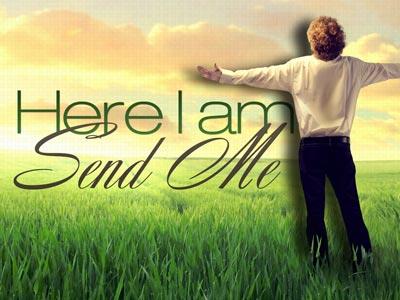-
Finding Ourselves Beyond Ourselves Series
Contributed by Brad Bailey on Nov 28, 2017 (message contributor)
Summary: If we truly want to "find ourselves" we shouldn’t look within but look outside of ourselves.
Beginning a series called LIVING BEYOND SELF…about how we truly find our lives by living beyond ourselves. Today I want to explore the quest to find ourselves. Many may feel the paradox of our cultural quest… feeling lost in the mass of humanity… even while becoming more self aborbed.
Perhaps this clip from the film ANTZ will help…
“ANTZ” – LOST IN CROWD - Opening scene shows ant named “Z” (characterized by Woody Allen’s voice and manner) in psychiatrist’s office describing his sense of not being able to cope with the sense of insignificance of being a part of the colony. Captures how many feel in a more mass oriented age… yet also introduces how that very feeling has led to the extreme individualism of our age… in which personal rights have lost touch with communal connestion and responsibility.
Dreamworks, 1998
Captures something of the paradox of our modern culture… feel lost… yet obsessed… Feels lost in the crowd… tries to find a greater meaning… in himself… but never finds it apart from others.
> That journey to find ourselves is what I want to invite us to consider.
I. The pursuit of finding ourselves
The pursuit of ‘finding ourselves’ is an interesting one. In many respects it dominates our culture… from the crisis of an infant to the drama of Jr. High to the pursuit of one’s career to our whole role as consumers of identity… to the reflections that come late in life.
I want to take a few minutes to consider just how our pursuit to find our true selves has become unique as modern Americans… because culture can become like the water that surrounds fish… the air we breathe… so pervasive we never consider it’s quality.
[ Indented paragraphs below from Paul Vitz - CULT OF SELF. CORNERSTONE INTERVIEWS WITH PAUL VITZ -"Cornerstone," Vol 23, Issue 106, 1994) ]
Humanity has been lost from itself…
Began in the garden… rooted in God…. a condition that changes based upon a grand deception…that we were to be like God.
God said… we’d become oppressed in our need for each other… which we see through much of history.
The premodern psychology of the self is … defined by their relationships with their family and with the members of their community, and by their status in society. One’s status and relationships was often forced on them by the tradition of the society they were born into.
Modernism has been a revolt against that. It’s been opposed to tradition, hierarchy and relationships. Modernism has instead emphasized the autonomous individual. America has now carried that to an extreme. I suppose the ideal modern person might be James Bond--he doesn’t have any bonds with anybody.
Paul Vitz, a psychologist at New York University, provided a brilliant expose of our cultural shift towards the autonomy of the self… or what he calls ‘selfism.’ In his book entitled the Cult of Self-Worship elaborates on selfism --the modern version of the myth of Narcissus, who falls in love with his reflection in a pool of water. This narcissism is evident in everything from advertising to psychology to New Age spirituality.
It was uniquely in the 20th century during which time western civilization saw two world wars… genocides.. atomic bombs… and Friedrich Nietzsche declared God is dead… and world will plummet into darkness.
Maybe we are just product of randomness… with no higher purpose or meaning.
Vitz explains …
Philosophers like Rene Descartes, Immanuel Kant, Jean-Jacques Rousseau and Friedrich Nietzsche contributed to the idea, but the concept didn’t become culturally dominant until the last 50 to 100 years, particularly in the United States. When the idea of an autonomous self was first proposed, it was in a cultural context where other ideas restricted its influence. It took time for the idea to work itself out through psychology and other disciplines. Carl Rogers, Abraham Maslow, Erich Fromm, and Rollo May helped to spread the idea of an autonomous self. Carl Jung was also concerned with self-realization. Later, pop psychologists helped spread selfism to the masses.
We are so immersed into the concept that it may be helpful to understand that it is actually an idea that was only recently developed and has been left found wanting…
Many psychologists define the self as primarily a conscious phenomenon--that we are whatever we consciously think ourselves to be. The whole idea of an autonomous self is a creation of a particular historic period in the West. The self-theorists and their devotees can’t cope with that.
(It) is a kind of secondary narcissism—(rather than primary which comes from childhood deficits.)
This sort of selfism is part of the atomization of American society, turning us all into isolated individuals. Selfism just doesn’t allow--and is even hostile to--social bonds and obligations. It’s all about rights and freedom and nothing about duties and obligations.

 Sermon Central
Sermon Central



